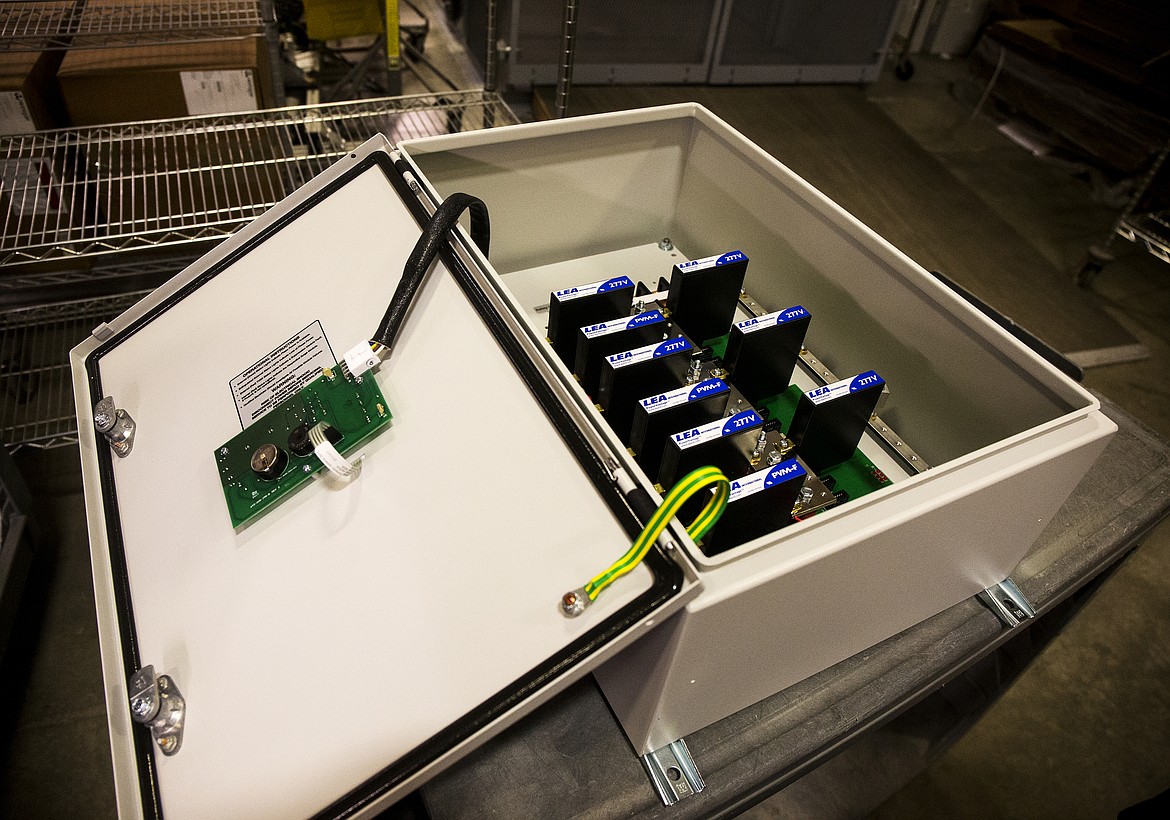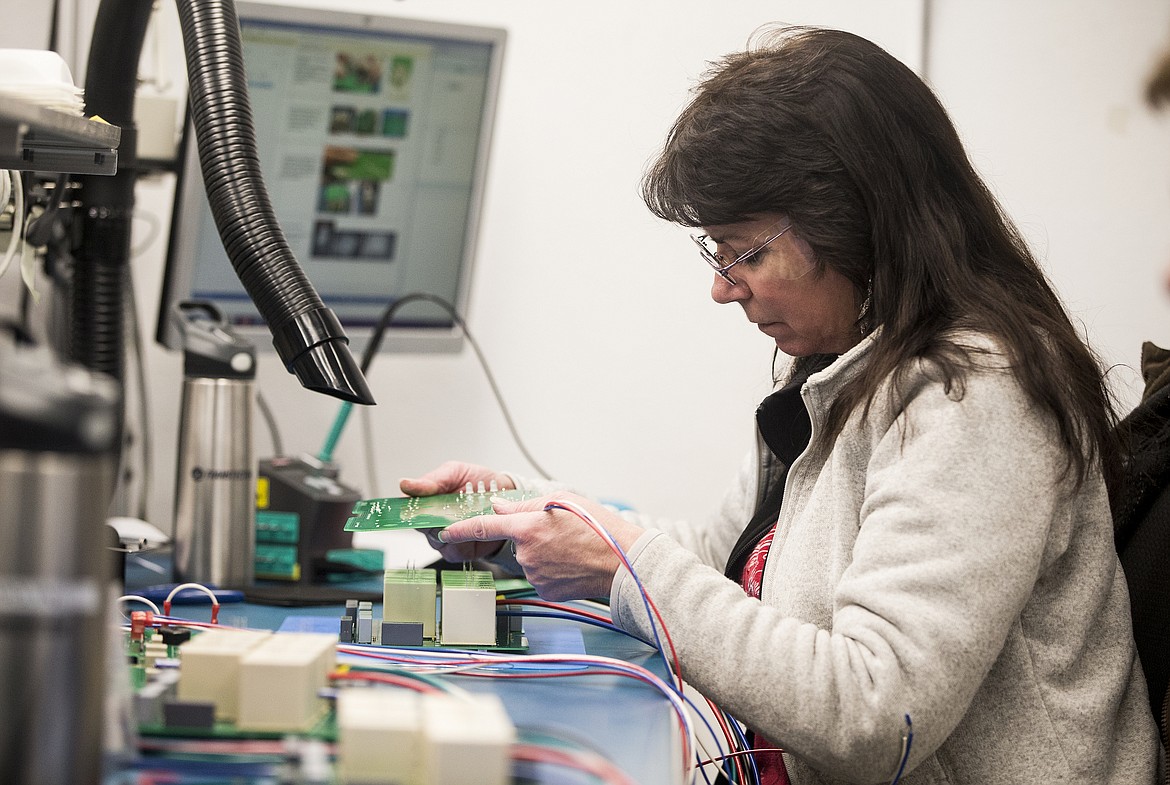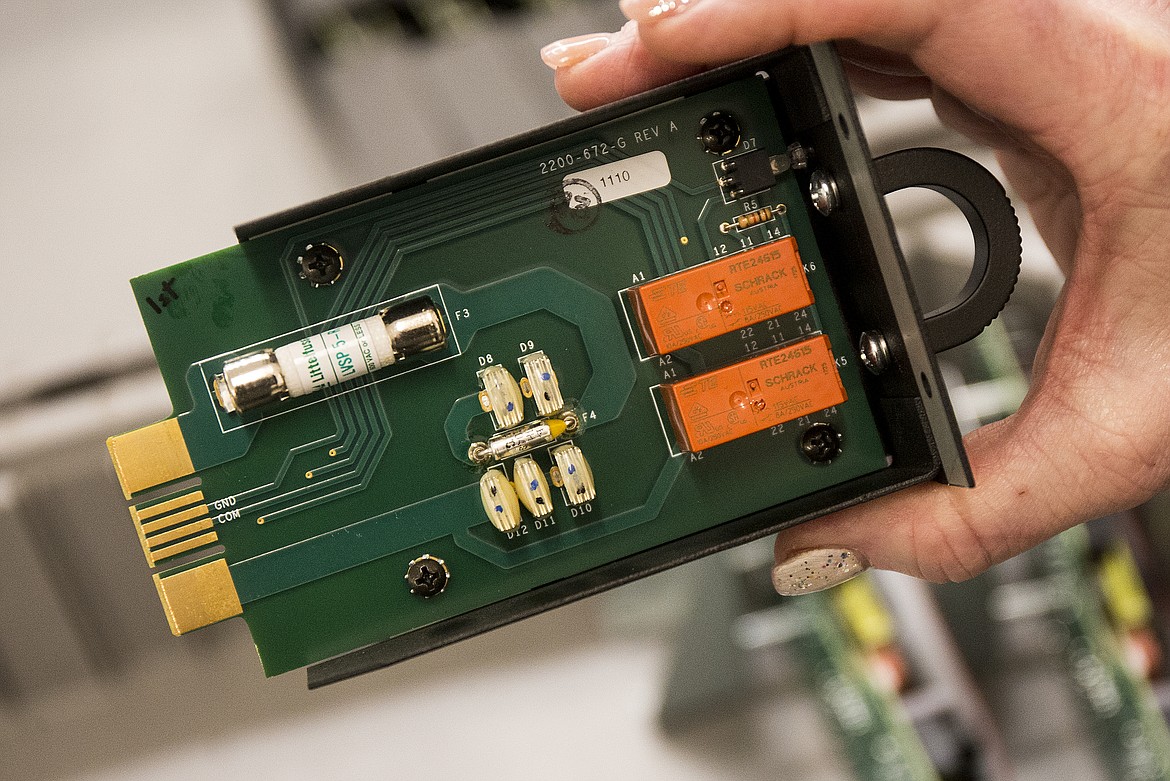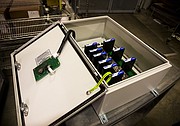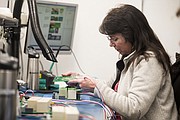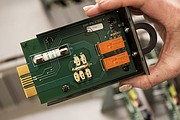Surge protectors celebrate 50 years in business
If you want a jolt, don’t call Transtector Systems.
The brand under the Infinite Electronics umbrella has engineered, manufactured and tested surge protection products for the industrial, military, transportation, medical and telecommunication sectors for the past 50 years.
"We keep critical communications running," said Kristin Keyes, marketing communications manager. "More and more devices powered by data lines need protected. As we move into smart vehicles and new technology, all those are going to need protection."
About 120 people work at the 50,000-square foot Transtector facility next to the Coeur d’Alene Airport in what was formerly a hangar.
"Our success and longevity is due in large part to the strength of our employees," said Chad Minden, director of operations and an 18-year employee. "We are extremely fortunate that nearly a third of our employees have been with us for 15 years or more."
Nancy Kjos, the manufacturing and facilities manager, has been at Transactor the longest at 35 years. She said she has experienced enormous change in the technology field during that time.
"I’ve embraced it," she said with a smile.
To illustrate just how far the company has come, she showed off her small notebook with product hand drawings and other information from years ago. Those were the days long before employees of today follow assembly instructions on a large computer screen by their desk.
"When I first started, we didn’t have a lot of documentation or drawings to build products," said Kjos, who began on the manufacturing line before management.
Kjos said she occasionally pulls her notebook out to show co-workers what a difference 35 years makes.
"Technology has definitely gotten a lot better," she said, adding that equipment has replaced most hand-soldering and has allowed the company to manufacture products faster and better due to the decrease in possibility for human error. "The quality is more consistent."
Intrigue about the winds of change and the Transtector team have kept Kjos with the company.
"I have the best crew; it’s a close-knit family," she said. "It makes you want to stay around. The surge suppressors we build really matter and make a difference for our customers.
"Whether it is surge protection keeping a rail crossing secure or protecting critical equipment being used in a military deployment, we manufacture our products knowing they are absolutely critical."
The company has a special certification that allows it to work on military products. Such work also requires strict visitor protocol to enter the facility.
See SURGE, 14
SURGE
from 12
"I expect our products will have more military applications in the next three to five years, especially with the climate of what’s going on in the world today," Minden said.
The company’s products are offered on a commercial level only, not in retail stores. Customers include AT&T, Motorola, Department of Defense, law enforcement, rail firms, Verizon and 911 centers.
"That’s why a lot of people have never heard of us," Kjos said. "It’s not like we’re the Kleenex brand."
Rick Ribbeck, an account manager, said the company must stay at the forefront of technology and work with customers throughout their product development process to ensure their AC (alternating current), DC (direct current) and data line electronic equipment is protected from lightning or power anomalies.
"We’ve worked hard to earn the respect and trust of our customers who rely on our expertise to keep their systems online," he said.
The Hayden location supports four of the 10 Infinite Electronic brands, including:
- Transtector, which offers protection against lightning and power problems for the military, rail industry and telecommunications firms;
- PolyPhaser, which provides radio frequency surge protection for GPS systems, cameras and closed-circuit TV;
- RadioWaves, which focuses on microwave antennas; and
- Kaelus, which focuses on test equipment for cellular networks.
By working within brand divisions, employees are specialists within their respective product set, offering products with technical support and same-day shipping.
Departments at the Hayden facility include engineering, assembly,
See SURGE, 17
SURGE
from 14
sales, customer service, shipping and receiving, marketing, manufacturing, testing, scheduling and purchasing.
Infinite Electronics, based in Irvine, Calif, has more than 1,000 employees, manufactures more than 100,000 parts and serves more than 100,000 global customers. It also has facilities in China and Australia.
Most of the company’s customers are domestic, Minden said.
Infinite Electronics recently acquired Transtector, adding the Hayden firm to its family of brands.
"Transtector is a highly successful global brand that offers great value for our worldwide customers," said Terry Jarnigan, Infinite president and CEO. "We are thrilled to be celebrating Transtector’s 50 years of excellence."
Transtector was founded in 1967 in California by Richard Odenberg. He started the company to develop and manufacture silicon products to protect transistor-based equipment.
The company moved to Post Falls and eventually Hayden in the ‘80s.
At one point, more than 200 people worked at the Hayden facility.
"(Employment) has fluctuated over the years with the changing economy, but we’ve weathered the changes without huge disruptions," Minden said. "Our products are market-driven and we weren’t as globalized years ago as we are now."


